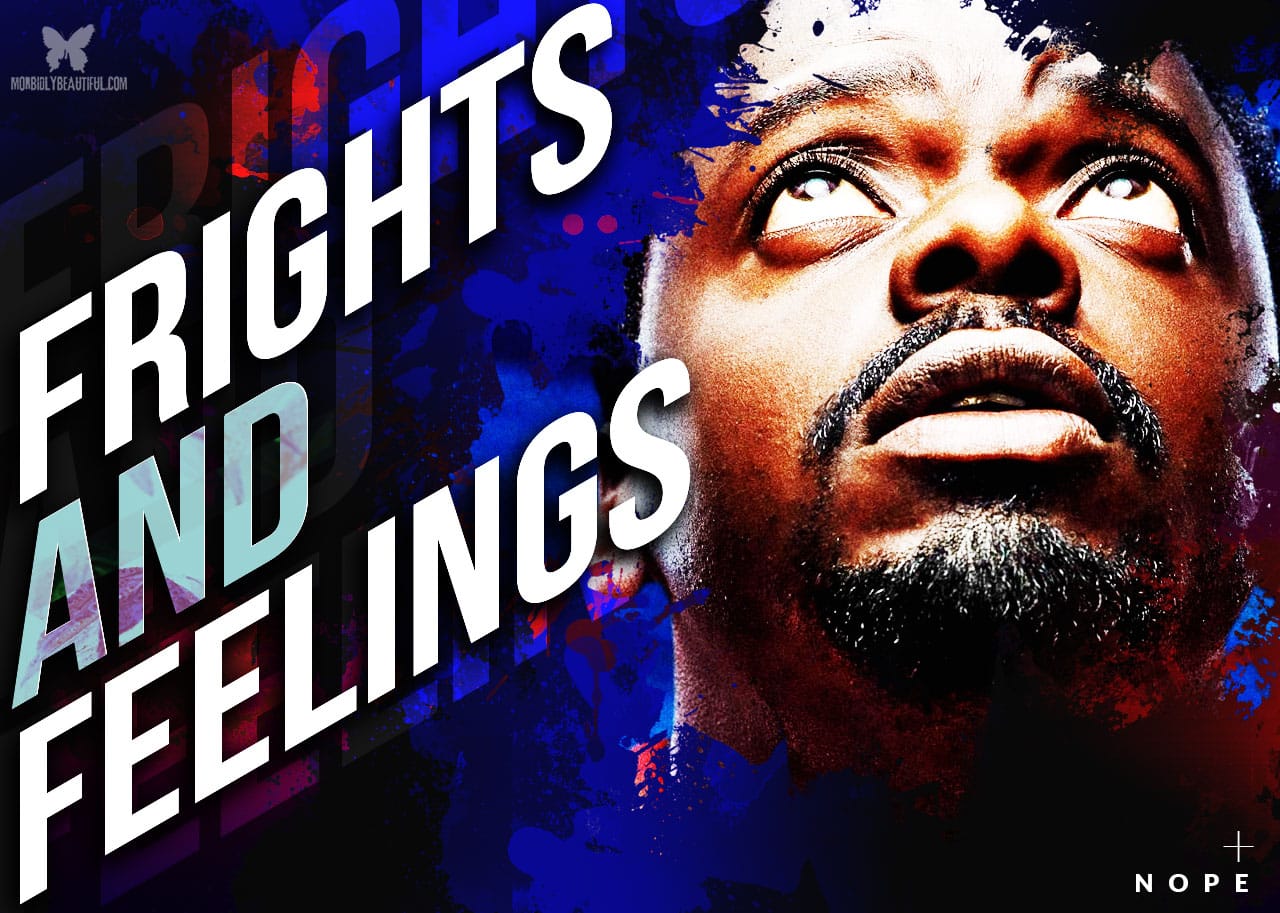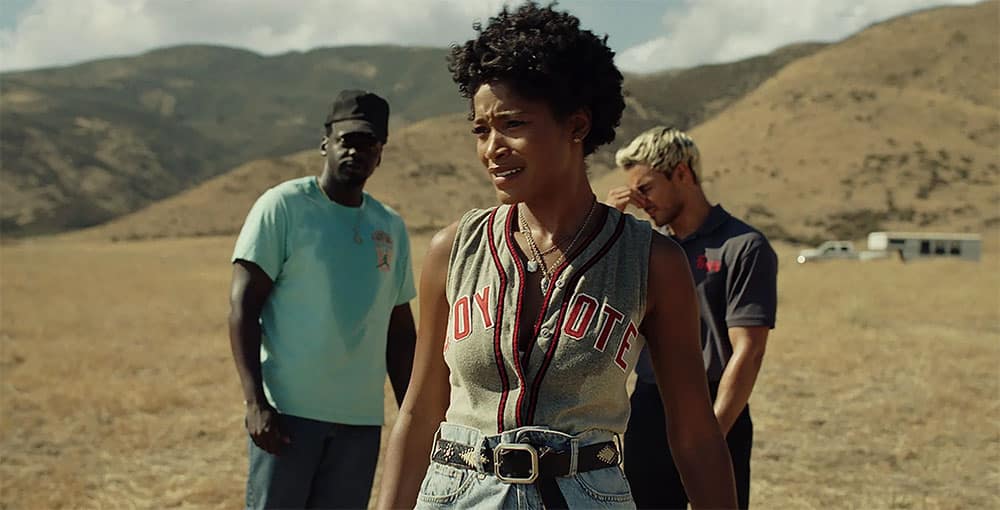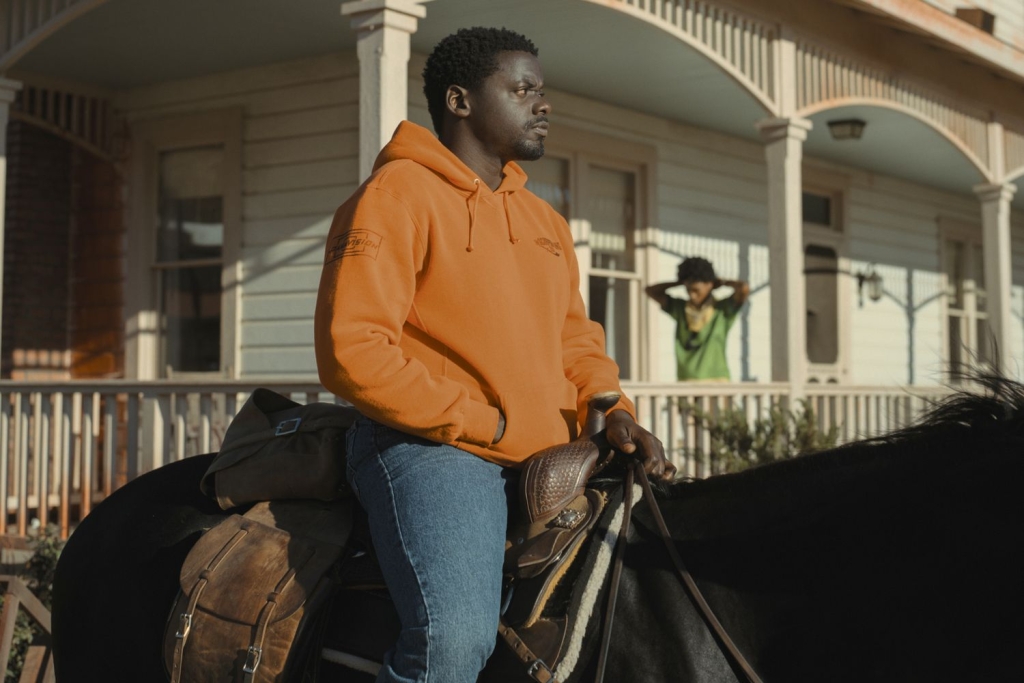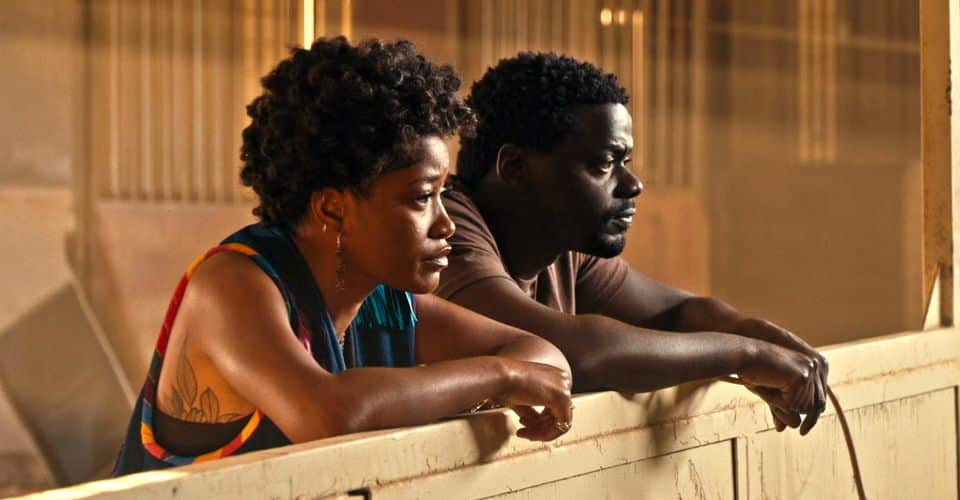“Nope” is a celebration of humanity and empathy, as well as a love letter to the people who pour their hearts into making movies.
Jordan Peele’s Nope was one of the most talked about summer 2022 movies.
The film split audiences, with many loving the film while others were unimpressed. I am in the Nope-loving camp, and it might be my favorite Peele movie to date. It’s become a constant in my household, a bit of a newfound comfort watch… as comfortable as one can be watching alien creatures digest people and chimpanzees going on rampages. Peele’s experimental nature and love of genre shine throughout the film, but the emotional core and the admiration of filmmaking make it a much more involving and personal experience for the viewer.
Talking about Nope and not talking about the film’s devotion to film and the creation of cinema would be negligent. This is a film made for filmmakers and those who love the art that goes into film.
The majority of characters in the film come from show business backgrounds. The Haywoods (Daniel Kaluuya and Keke Palmer as OJ and Emerald, respectively), by trade, are animal trainers who specialize in horses; Antlers Holst (Michael Wincott) is a cinematographer, and Ricky “Jupe” Park (Steven Yeun) is a performer. To take the concepts of filmmaking even further, Peele styles Keke Palmer’s Emerald “Em” Haywood as a jack-of-all-trades and master of none sort of talent who can do everything from acting to riding bikes and sewing.
You see many of these people in filmmaking because, well, filmmaking requires many different skills, especially independent filmmaking. Coming in with diverse and perhaps even seemingly useless skill sets comes in handy in the long run when it comes to film.
Nope seeks to glorify the ingenuity of those who make films, especially the ones that don’t receive the sort of fanfare that above-the-line members of the crew get.
Everyone cares about the forward-facing talents, the directors and sometimes the writers. But it’s easy to forget other creatives working on films, without whom moviemaking magic would not be possible. Gaffers, grips, assistant directors, camera assistants, production designers, sound designers, lighting crew, and members of the costuming, hair, and makeup teams all matter and are important in crafting these stories.
Nope is a film that ponders the idea of the word miracle, specifically the idea of a bad miracle. Yet, when it comes to filmmaking, there aren’t miracles. People can call it a miracle because that’s part of the illusion. Filmmaking is supposed to look like a miracle when it’s really a bunch of passionately wonderful people bringing their skills to the table and making one beautifully cohesive team. It’s all love and devotion and less of a miracle.
Having made a movie myself, I appreciate the fact that movies aren’t miracles. I appreciate that people are a part of that blisteringly difficult work, and the love I have for those who work in film is endless.
Aside from being a lovingly rendered tribute to film and below-the-line workers, NOPE is a film about grief and healing and what it means to face your trauma.
OJ’s character is quiet and in a state of traumatized grief throughout the film. The film opens with OJ witnessing the freak accident that leads to his father’s death. Being a shy and gentle man, OJ deals with most of his trauma in silence. He has the mantle of the heir of the family farm and horse training business thrust upon him. His discomfort with attention and working the jobs that normally would fall to his father is palpable throughout the film.
Kaluuya intelligently plays a character who is haunted, and the result is haunting.
OJ’s not vibrant and outgoing like his sister, a natural businesswoman and seemingly a better fit as a face and voice for the business. However, OJ has a tacit understanding of animals and is passionate about his horses. His quiet passion shines throughout the film and has been a way for OJ to use his introspection for healing.
OJ is able to face the monster that killed his father and survive it, a metaphor for accepting the harsh realities of the healing process.
Jupe, who in many ways is a foil to OJ, approaches the monster with an arrogance that stems from his lack of healing; he’s survived one tragedy and assumes he is immortal, special even, because of it.
OJ’s humility and willingness to give himself over to healing and face the horrors that took his father is important. The character’s emotional intelligence in the face of terror is inspiring and speaks to the real-world need to heal and push forward even when it’s difficult.
Em is an ode to women who are categorized as being “too much.”
The phrase “too much” has become a gendered and misogynistic statement. She’s loud, enthusiastic, fast-talking, and talented. It’s obvious that she has never been given the space to comfortably and authentically be herself, but in the face of that, she continues to be herself. She’s a character that easily could have been smoke and mirrors, a fraud who claims to be a multi-hyphenate. Em feels that she needs to prove herself, and she hasn’t quite had a chance to. She’s someone who has overcompensated so that people will see her worth.
Em, understandably so, harbors a sense of resentment toward her father because of this.
Em’s chance to prove herself to him was taken from her and given to OJ, who has always seen and held space for his sister. He helps facilitate the opportunity for her to make history, to get the Oprah shot of the alien terrorizing the farm. In the end, Em rises to the occasion, proving that she’s not all talk, proving that she’s not too much but someone who has constantly been around people who have asked her to be less due to their own doubts.
It’s beautiful to see a woman celebrated in this manner.
In a world that tells women, especially Black women, that they need to be quiet and be less, portrayals like Em are desperately needed; her importance cannot be overstated.
There’s a lot to love about Nope. That much is obvious.
This is the sort of film a writer can easily write a book over, especially a writer who works in film and has loved film their whole life.
Nope is a celebration of many facets of humanity and empathy, as well as a shining light on what filmmaking is and the people who pour their hearts into the movies and stories that we all watch and love. This movie is gloriously cinematic and has a lot of heart, which, in less experienced hands, could come across as disingenuous.
Between all the horror of the film, there is a comforting story there; you just have to look past Jean Jacket’s digestion of people to see it, so it might take a few watches to feel the warm fuzzies.




















Follow Us!